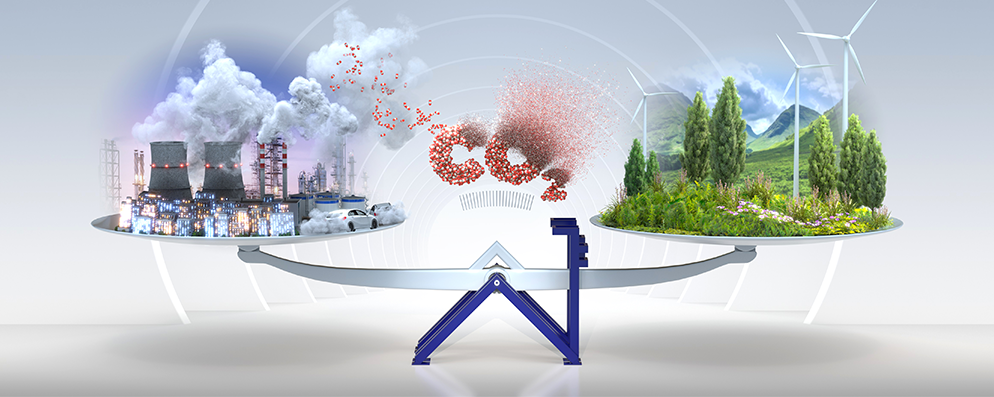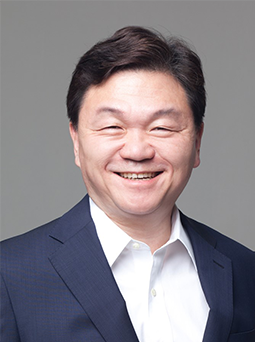
On September 3rd, 2021, faculty members of SNU College of Engineering gathered at the symposium ‘Gong-Haeng’ (공행, 工行, asking next step of the College of Engineering for a new leap forward) to discuss the future agenda of the engineering practices. Two main topics had arisen. First, what are the main challenges of the so-called ‘4th Industrial Revolution,’ and how can members of the College of Engineering promote ‘Digital Transformation’? Second, what are the methods to overcome ‘Global Warming’ issues, and what can members of the College of Engineering do in the ‘Carbon Neutrality’ era?
Both topics are related to pretty much all the majors of the College of Engineering (COE). Thus, both topics were discussed at length and later developed into COE faculty team research projects for a more detailed and organized action plan. Nevertheless, the second topic received more popular responses, much attested by the recent announcements by Mr. António Guterres, the Secretary-General of the United Nations.
In December 2020, Mr. António Guterres warned that the commitments of the 2015 Paris Agreements were not sufficient and were not respected. As an electrical engineer and physicist, he urged all other countries to face the scientific facts and to declare an emergency until carbon neutrality is reached. Carbon neutrality denotes cutting greenhouse gas (GHG) emissions to as close to zero as possible and absorbing the rest from the atmosphere through carbon capture. As requested in the Paris Agreement, the European countries emphasized carbon neutrality mainly to keep global warming to no more than 1.5°C.
In March 2022, Mr. António Guterres, with his background as a politician, established the High-Level Expert Group on the Net-Zero Emissions Commitments of Non-State Entities. It is estimated that GHG emissions need to be reduced by 45% by 2030 and reach net zero by 2050 to achieve the goals of the Paris Agreement. However, not all countries agree on the proposal’s urgency, as we face multiple challenges, such as COVID-19 and Russia-Ukraine war, at the same time.
However, the fact that the top 20 emitters (Argentina, Australia, Brazil, Canada, China, France, Germany, India, Indonesia, Italy, Japan, Republic of Korea, Mexico, Russia, Saudi Arabia, South Africa, Turkey, the United Kingdom, the United States, & EU) are responsible for about 75% of global GHG emissions, remains as the hard evidence. In addition, new technology needs to be developed to achieve this goal which requires universities, especially COE, to develop a new educational program for the new generation and industries.
In the meantime, in mid-2021, the Ministry of Education of Korea launched a new program to develop an open college education program called ‘Convergence and Open sharing System (COSS, 혁신공유대학).’ SNU College of Engineering was selected as a member of three consortiums among the eight proposed: ‘Big Data,’ ‘Next-generation Semi-conductor,’ and ‘New Energy Industry.’ With an annual budget of more than 10 billion won per consortium for the next 6 years, each consortium is to develop 30~50 new digital online classes in these new fields and 5 to 10 new micro-degree programs.
In light of these events, the second topic of the ‘Gong-Haeng’ symposium, searching for new engineering practices for global warming and carbon neutrality, became the main topic of the New Energy Industry COSS Consortium. While preparing for the new classes, a survey was conducted to explore students’ interests. We asked students to choose keywords they wanted in the new classes, and the following diagram is the result by Word Cloud Analysis of the 750 responses.

Figure
Word cloud analysis of Undergraduate Students’responses to needs for new classes
of the New Energy Industry COSS Consortium
In May 2022, carbon neutrality became the topic of another faculty team research project, “Role of College of Engineering of Seoul National University in Carbon Neutral Transformation.” The team carefully reviewed all the research activities and the curriculum of SNU College of Engineering. As a result, the team found that most departments not only provide various courses on global warming and carbon neutrality, but also carry out many research projects related to carbon-neutral engineering.
One way to implement carbon-neutral products is by making all the products we use cheaper and more cost-effective. To this end, various international companies have pledged to become carbon neutral or negative by 2050, including Microsoft, Delta Air Lines, BP, SK, and Samsung. Such pledges require the industry to create a new environment for new research activities. Therefore, much of the research at the SNU College of Engineering is also related to implementing carbon-neutral products by making products cheaper and more cost-effective.
According to the final report of this project, not only have new courses directly related to carbon neutrality been opened, but various existing courses also include content on technology for carbon neutrality or a sustainable society.
Among 203 carbon-neutral related research projects currently pursued by the SNU College of engineering faculties, we would like to introduce several of them as representatives in detail in this magazine.
-

-
Professor Eunnyeong Heo
Ph.D. in Mineral Economics
Professor of Energy and Technology Economics
Vice Dean of the Graduate School of Engineering Practice(GSEP)
President of Korea Energy Law Institution
Outside Director of Samsung Electronics Co.
Editor of The Energy Journal


